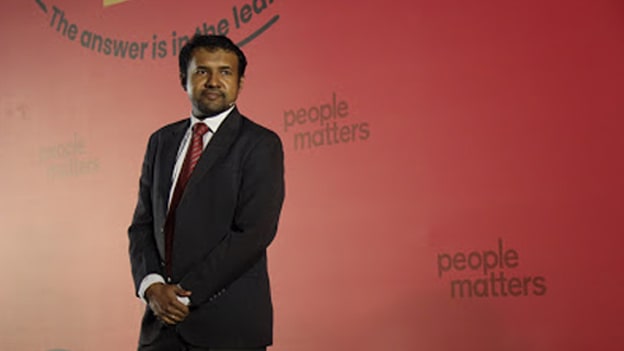The effectiveness of 'Deep Learning' in a bite-sized world

For a long time, we have been hearing about the future of work in bits and pieces. At the People Matters L&D Conference 2019, John Cherian, Executive Director and Co-Founder, Enparadigm, spoke about the future of work and how learning can be implemented effectively during the People Matters L&D conference.
We know the future of work is going to involve the elimination of repetitive tasks by machines. Secondly, there is going to be the rise of the human quotient. HR professionals need to become more human as machines will be taking over most of the analytical bits. Thirdly, the need for critical thinking in the way work is done. Thinking that is complex, has a holistic view and multiple broad-based parameters.
Now it's time to find out how are all these things going to impact the future of work. Cherian talked about a future of work loop, saying if we look at the universe of work and the different kinds of tasks that will form the universe, this is how we are going to work:
- Identify repetitive tasks
- Delegate to machines
- Identify higher-order tasks and make a step-change
- Simplify and structure higher-order tasks
While we have machines doing deep learning by using algorithms to simplify, structure, etc.; human beings are looking at higher-order tasks that require judgment and critical thinking. As machines will be doing deep learning, humans will be doing deeper learning. The question is, how do L&D professionals facilitate deeper learning for their employees?
The goal for many learning tools today is anytime, anywhere, seamlessly synchronized and highly engaging. Learning seems to be increasingly modeled around distraction. Organizations are taking learning to phones and social platforms because that's where employees are spending their time. But there is a flaw if that's the only approach used. This is not supposed to be 'The solution', but it's part of the solution. To look at a holistic solution, we need to look at learning in stages:
- Unconscious incompetence
- Conscious incompetence
- Conscious competence
- Unconscious competence
- Mastery
John explained these stages with the help of an individual learning a car. He says, imagine how one learns to drive a car. Before you get in the car, you don't know how to drive the vehicle. Once you get in, you know you don't have the skills to drive it. Then we take our parents' car and crash it a few times or go to an instructor to learn. When you start off, you think you're driving, but it's the instructor who has the controls. Over a period of time as you get competent and get the controls.
That's the flow of learning; you go for being unconsciously incompetent to being consciously competent. In the beginning, when the instructor gives you the controls, you are conscious about it, but as you keep learning, it enters your subconscious. That's when you become consciously competent.
Most of the professionals make the mistake of pushing learning in the first stage when individuals are unconsciously incompetent. The learners are unaware and unmotivated, which creates friction. The three steps to bring about valuable learning is to drive awareness, motivation and the actual learning phase. People often underestimate the power of motivation, but it plays a crucial role in the willingness an individual displays.
After that, professionals need to focus on the learning stage. Once the individual is ready to learn, professionals need to decide in what form learning will be done. It can be anything from snackable content to microlearning to deep learning. The whole process of converting learning into a habit requires our brain to keep retrieving from the memory what it has learned multiple times practicing it in different forms and shapes.
Challenges for the L&D function
There's a difference between competence and confidence. The Dunning-Kruger effect explains this perfectly. The people who have the least knowledge of a subject are the ones most confident about it. This is majorly an individual's self-awareness problem, but it can become a challenge to L&D professionals. If these individuals can be moved to the competence side, they understand where they lack, and the learning phase starts.
When you are trying to get people motivated or aware, four zones are present:
Comfort Zone: The first one is the comfort zone where people are blissfully unaware, and then you make them aware of the changing times. That's when they enter the fear zone.
Fear Zone: Many people don't learn because professionals are not able to bridge the gap between the comfort zone and fear zone. A lot of professionals focus on dashboards to track progress in the hope of motivating people, but that only motivates the ones who are past the fear zone. It actually acts as a detractor for people present in the fear zone.
Learning Zone: Once the person moves past the fear zone, they enter the learning zone where they acquire new skills, extend their comfort zone and learn to deal with challenges.
Growth Zone: In this phase, they find purpose, set goals conquer objectives and live dreams.
Key Takeaways
There is a need for flow when it comes to learning. If people feel very challenged, they feel anxious, and if they aren't given enough challenges, they get bored. If you are giving employees something where their skills and challenges are not matching each other, it might become a problem. Thus when you're constructing a long term journey for employees, make sure to keep this flow in mind for a progressive module.
(This article is based on a session by John Cherian, Executive Director and Co-Founder, Enparadigm conducted during the People Matters L&D Conference 2019.)












